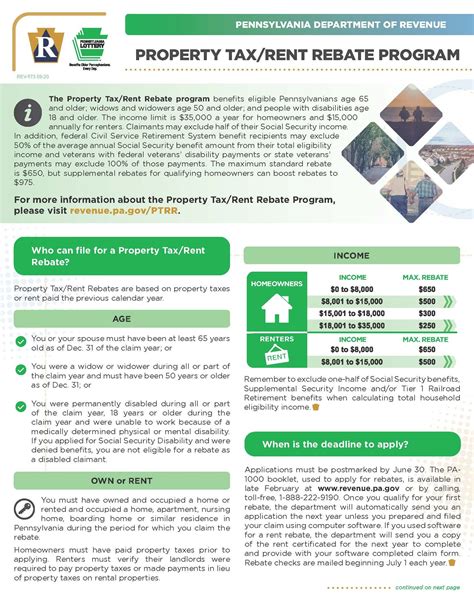Understanding Property Tax Rebates: What Homeowners Need to Know
Property taxes can be a significant financial burden for homeowners. However, many are unaware that property tax rebates exist, which can provide some relief. In this article, we will explore what property tax rebates are, who qualifies for them, how to apply, and the impact they can have on your finances.
What is a Property Tax Rebate?
A property tax rebate is a refund provided by local or state governments to homeowners, often aimed at reducing the financial burden of property taxes. These rebates can take various forms, including direct payments, credits on future tax bills, or adjustments in assessed property value.
Why Property Tax Rebates Matter
Understanding property tax rebates is essential for homeowners, as they can significantly reduce the amount paid in taxes. With rising property values and tax rates, these rebates can provide much-needed financial relief. Additionally, they encourage homeownership by making it more affordable.
Who Qualifies for Property Tax Rebates?
Eligibility for property tax rebates varies by state and local jurisdiction, but several common criteria often apply:
- Homeownership: Typically, only homeowners are eligible for rebates; renters usually do not qualify.
- Income Limits: Many rebate programs have income thresholds, meaning that lower-income homeowners may have priority.
- Age or Disability Status: Some programs are designed specifically for senior citizens or individuals with disabilities, offering them greater financial assistance.
- Property Type: The property in question often needs to be a primary residence rather than an investment or secondary property.
How to Apply for Property Tax Rebates
The process for applying for property tax rebates can differ widely. However, the general steps are usually as follows:
- Research Local Programs: Start by researching property tax rebate programs in your state or local area. Websites for your local tax assessor or municipal government are great resources.
- Gather Required Documents: Applicants typically need to provide documentation such as proof of income, property ownership, and in some cases, proof of age or disability.
- Complete Application Forms: Fill out the required application forms accurately. These may be available online or through your local government offices.
- Submit Applications: Make sure to submit your application before the deadline. Some programs require annual application renewals.
- Follow Up: After submission, it can be beneficial to follow up with local authorities to check the status of your application.
Impact of Property Tax Rebates on Homeowners
Property tax rebates can have a significant impact on homeowners, allowing them to allocate their finances more efficiently. Here are a few ways these rebates can be beneficial:
- Financial Relief: Homeowners can experience immediate savings on their tax bills, easing financial strain.
- Increased Cash Flow: With less money going towards taxes, homeowners can invest in home improvements, save, or spend in other areas of their lives.
- Community Development: Lower property taxes can empower homeowners to remain in their homes longer, fostering stable neighborhoods.
- Enhanced Property Value: When communities support homeowners through rebates, it can lead to overall increases in property values, benefiting everyone.
Common Misconceptions About Property Tax Rebates
There are several misconceptions surrounding property tax rebates that can discourage homeowners from applying:
- “I Won’t Qualify”: Many homeowners assume they won’t meet eligibility criteria without checking the specifics of local programs.
- “It’s Too Complicated”: While the application process can seem daunting, many local governments offer assistance and user-friendly resources.
- “Rebates Are for the Wealthy”: In reality, many rebate programs are aimed at assisting lower and middle-income families.
Conclusion
Property tax rebates can be a crucial financial resource for homeowners looking to ease their tax burden. Knowing the eligibility criteria, application process, and the potential impact can encourage homeowners to take advantage of these programs. If you haven’t explored property tax rebates yet, consider investigating what options are available in your area. Doing so can pave the way for both short-term relief and long-term financial stability.
FAQs
1. What types of property tax rebates are available?
There are various types of rebates, including general property tax rebates, senior citizen rebates, veteran exemptions, and programs for the disabled, among others. These typically vary by state and locality.
2. Is there an application fee for property tax rebates?
Most property tax rebate programs do not require an application fee. However, it’s essential to confirm with your local authorities to ensure there are no hidden costs.
3. How often do I need to apply for a property tax rebate?
Some programs require annual applications, while others may offer automatic renewals if eligibility remains unchanged. Always check with your local tax office for specific requirements.
4. Can I appeal if my property tax rebate is denied?
Yes, if your property tax rebate application is denied, you generally have the right to appeal. Specific procedures for appeals can vary, so it’s best to inquire with your local tax authority.
5. Do property tax rebates affect my chances of receiving other financial assistance?
In most cases, receiving a property tax rebate should not negatively impact your eligibility for other financial assistance. However, certain income-based programs may consider your tax obligations in their evaluation.
This HTML code can be copied directly into a WordPress post or a page to display as an article on property tax rebates. The structure includes headings, paragraphs, lists, and FAQ sections as requested.
Download Property Tax Or Rent Rebate
